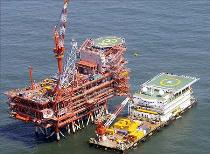The current trend in crude oil prices gives cause for much concern and if this persists, many of the calculations indicating further recovery and improved growth for the economy can be nullified.
 This year, oil prices have risen from $70 per barrel to briefly touch $87, falling back somewhat thereafter. Such levels have not been seen since October 2008. That year, oil crossed a historic $140 per barrel, falling sharply thereafter to under $40 as recession gripped the global economy.
This year, oil prices have risen from $70 per barrel to briefly touch $87, falling back somewhat thereafter. Such levels have not been seen since October 2008. That year, oil crossed a historic $140 per barrel, falling sharply thereafter to under $40 as recession gripped the global economy.
It is the continued upward trend through the latter part of last year, which shows no sign of abating even after crossing $80, that has the tea leaf readers worried. Globally, the rising price underlines the fact that recovery is gaining ground, but if the price continues to rise, it can stall the recovery, which is not yet fully established, in mature economies.
Some analysts have even gone on to say that high energy prices have the potential to trigger a recession. Should this happen in the mature economies, the fallout in the emerging economies can only be adverse and can stymie their more buoyant growth.
High oil prices, which rein in growth, will be bad news for India in more than one way. Slower growth will take away some of the buoyancy that revenue collection is now displaying. But India's problem is compounded by the fact that oil prices are not fully passed on and thus result in under-recoveries for the oil marketing companies. Last year, under-recoveries nudged Rs 50,000 crore (Rs 500 billion), with the government chipping in Rs 12,000 crore (Rs 120 billion).
According to a senior oil ministry official, if oil prices again touch $87 and refuse to come down then, with current consumer prices, the current financial year can end up with a massive under-recovery of Rs 80,000 crore (Rs 800 billion). And should prices reach $100 per barrel, the under-recovery will touch Rs 1.2 lakh crore (Rs 1.2 trillion). Under-recoveries, if nothing else, ruin the finances of the oil marketing companies, and sap their energy and desire to run themselves efficiently.
All this points to what is simple and widely understood. For India to be on a sustainable growth path, its energy prices will have to be market-determined and go up if global prices go up. There is a double negative to under-pricing of energy. First, it ends up as higher public sector deficit, hidden or open. Plus, the lower prices send the wrong signal, offering no incentive to becoming more energy-efficient.
This undermines what is the best insurance in a world that will have to live under the shadow of high energy prices -- becoming more energy-efficient and thus not having growth and prosperity held hostage to the energy shortage plaguing the global economy. The imperative before the government is thus clearly laid out. With oil at over $80, a rise in consumer prices is overdue. This will make an already worrisome inflation scenario worse, but with better-to-full recovery taking place, inflationary expectations will go down, thus bringing down prices in general over time. Since an election is not round the corner, the government should not hesitate to act in the right direction.






